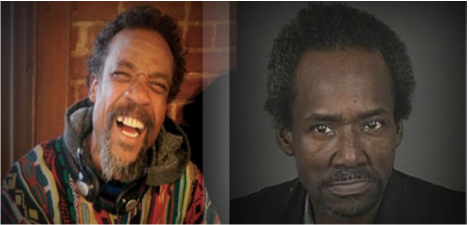|
|
<From the Broadway Mega Hit "Hamilton": "Who Lives, Who Dies, Who Tells Your Story" Who is telling the story of the thousands of people with mental illness in Colorado's Jails & Prisons? Ironically, it is often Sheriffs, Jail Captains, Jail Administrators, etc. in Colorado Jails who are telling the story of people with mental illness in jail. |
Study Finds 2/3 of Mesa County Jail Inmates Struggle with Mental Illness
|
Pitkin County“This (grant) has to do with the realization in Colorado that state resources to deal with mentally ill people are really lacking,” [Don Bird, Pitkin County Jail administrator] said. “It’s inexcusable. It’s a realization that’s way past due.”
http://www.aspentimes.com/news/19366244-113/pitkin-county-jail-gets-grant-to-provide-inmates |
Douglas County "Jails and prisons have become the warehouses for people who aren't getting treated elsewhere," said Attila Denes, a captain at the Douglas County jail.
"It's among the most expensive and least humane" ways to provide care. "Denes, a student of history, sees patterns in American society's treatment of people with mental illnesses. "As early as the 1650s, the plight of so-called "lunatics" in prisons attracted a call to the colonial legislature to find alternative housing. "We've gone full circle," Denes said. "We're back today to where we were in the 1650s."
Quote from Douglas County Jail Captain Attila Denes in Rocky Mountain PBS I-News article:
Val's Take Well, Sheriff Firman pretty much corroborates the other Sheriffs in the State of Colorado with regard to the high percentage of people with mental illness seen in the jail population.
NOW in the current climate, CIT (Crisis Intervention Training) is absolutely essential. At some point, like this point, we need step back and ask -- "Why are we having all of these crises?"; "How could we prevent these crises from happening in the first place?" CIT can definitely help, and it can't address long unmet needs for the State to invest in housing for people with serious mental illness as well as intensive services such as Assertive Community Treatment (ACT). AND that State failure is what leads to the revolving door of homelessness and incarceration. Title II of the Americans with Disabilities Act and the 1999 US Supreme Court Olmstead decision SHOULD BE preventing this for people with disabilities, but people with "mental illness" often face a fair amount of unwitting discrimination. From our perspective and we think from the perspective of law enforcement, it couldn't be more obvious that people with serious mental illness in the State need access to Housing and Intensive Treatments (we would say Assertive Community Treatment). If the need genuinely isn't clear to the State (and quite frankly we and others find that hard to believe) we are happy to discuss and provide additional information. If the concern is how the heck are we going to pay for this we are happy to discuss and provide additional information. |
|


